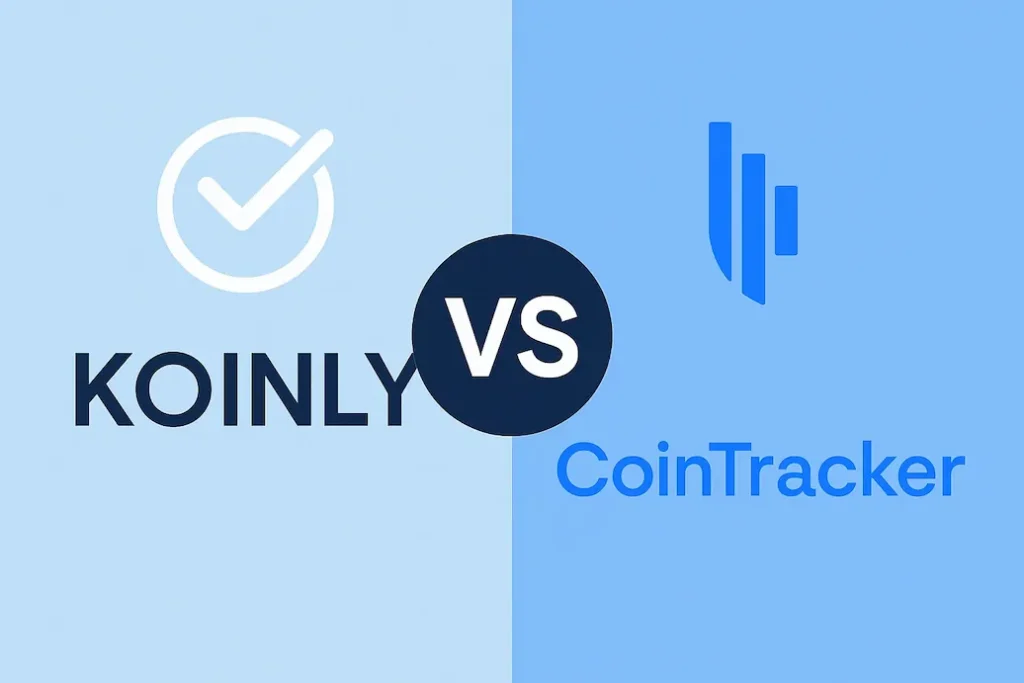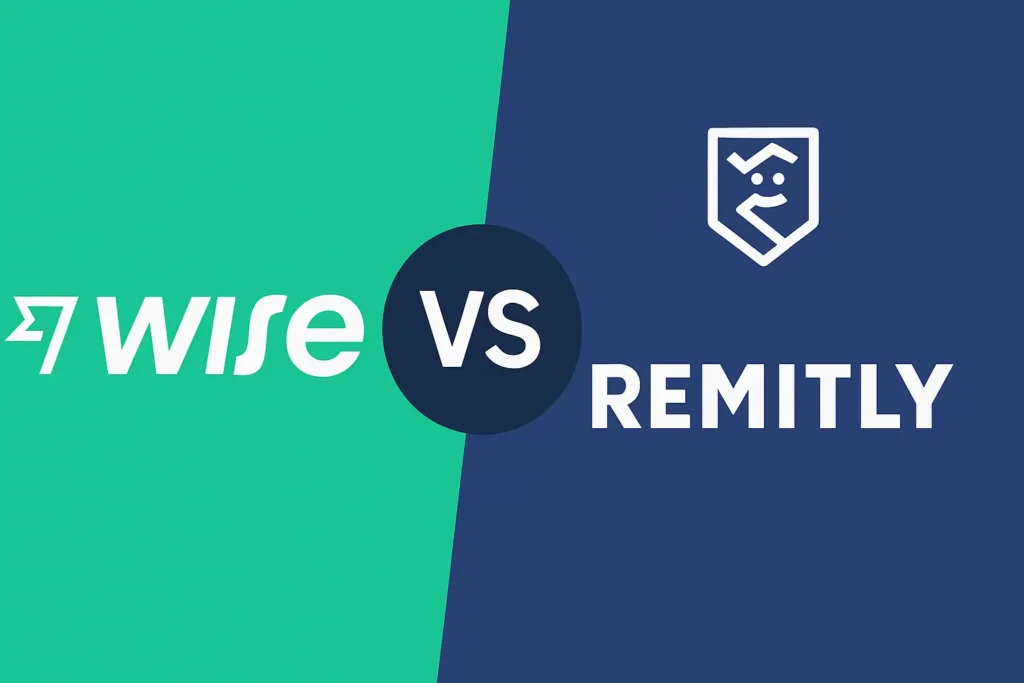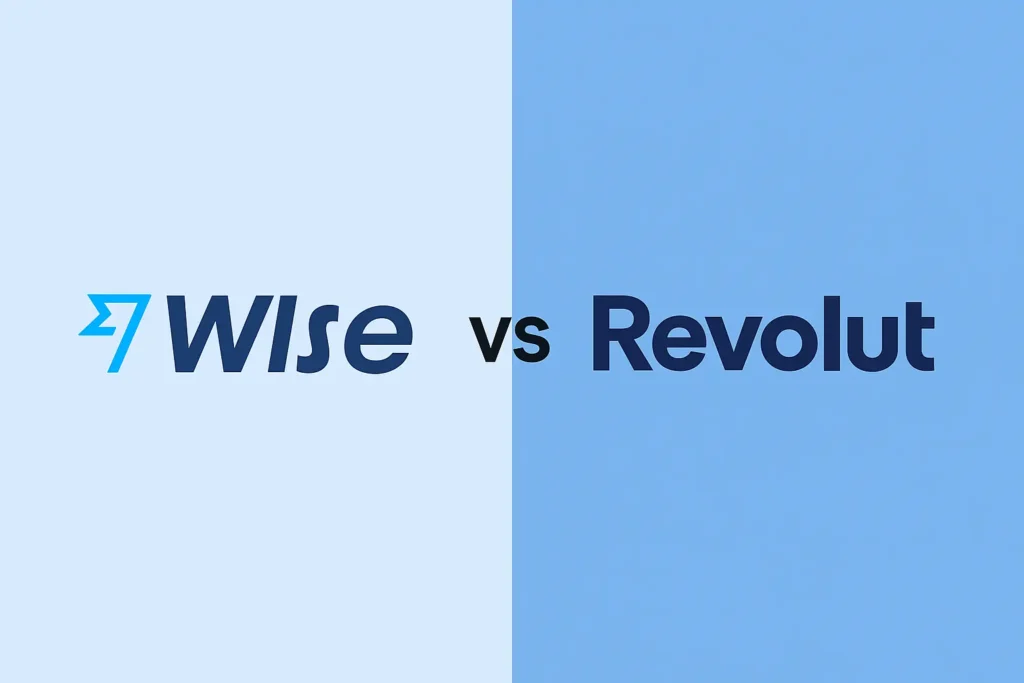Tax season’s creeping up again, and if you’re like most crypto traders, you’re probably stressing about how to sort through all those transactions. I’ve been there—staring at spreadsheets full of DeFi swaps, NFT purchases, and staking rewards, wondering how the heck I’m supposed to make sense of it all for the IRS.
That’s where Koinly and CoinTracker come in. These two platforms have basically cornered the crypto tax software market, but they’re surprisingly different once you dig into the details.
I spent weeks testing both, reading through Reddit threads, and analyzing user reviews to figure out which one actually delivers.
Best Crypto Tax Software: Why This Choice Matters More Than Ever
Look, the crypto tax game changed big time in 2025. The IRS rolled out new wallet-based cost tracking requirements, and suddenly everyone’s scrambling to make sure they’re compliant. This isn’t just about avoiding penalties anymore—it’s about staying on the right side of increasingly complex regulations.
Here’s the thing: Koinly and CoinTracker serve totally different crowds. Koinly’s the go-to for international traders and DeFi enthusiasts who need comprehensive protocol support. CoinTracker? They’re laser-focused on US investors who want sleek portfolio tracking alongside their tax reports.
The community feedback tells the whole story. One tax professional on Reddit was brutally honest:
“As a tax pro, the only one I will not take client data from is cointracker. I’ve yet to see accurate results on that platform.” Ouch. Meanwhile, a long-time user shared: “Used Koinly for the last 4 tax years… the flexibility to update/edit transactions is fantastic.”
Cryptocurrency Tax Calculator Features: The Real Head-to-Head
Integration Power: Who Connects to What?
This is where Koinly absolutely destroys the competition. We’re talking 700+ exchanges, 300+ wallets, and 100+ blockchains. They’ve got everything from the big names like Binance and Coinbase to obscure DeFi protocols you’ve probably never heard of.
CoinTracker plays it safer with around 300 exchanges. They focus on making sure their connections are rock-solid rather than chasing every new platform that pops up. It’s a trade-off between breadth and reliability.
One user put it perfectly: “You need your crypto tax calculator to support all of the cryptocurrencies you’re investing in and all of the exchanges and wallets you’re using – and Koinly is miles ahead… with more than 900 exchanges, wallets, and blockchains supported.”
DeFi: Where Things Get Complicated
If you’re deep into DeFi, Koinly is your friend. They automatically recognize hundreds of protocols and can make sense of those crazy complex smart contract interactions. Their spam detection is solid too—no more manually deleting thousands of worthless airdrops.
CoinTracker? Not so much. You’ll be doing a lot of manual categorization, especially with newer protocols. One frustrated Reddit user summed it up: “Them defi txns do add up quick, tho! Some farming activities include like 5 different bonus tokens ($0 value) per harvest, so a more casual user will still have 1000’s of txns over a year.”
Tax Form Support
Both handle the essential US forms (8949, Schedule D), but Koinly goes way further with international tax reports for 15+ countries. If you’re not in the US, CoinTracker might leave you hanging.
The big news? Koinly’s already prepped for the 2025 IRS wallet-based tracking requirements. CoinTracker’s still playing catch-up.
Complete Feature Comparison: The Numbers Don’t Lie
| Feature | Koinly | CoinTracker | Winner |
| Pricing | |||
| Free Plan | 10,000 transactions, no tax reports | Limited transactions & features | Koinly |
| Entry Level | $49/year (100 txns) | $59/year | Koinly |
| Mid-Tier | $99/year (1,000 txns) | $199/year | Koinly |
| High-Volume | $199/year (3,000+ txns) | Up to $599/year | Koinly |
| Integrations | |||
| Exchanges Supported | 700+ | 300+ | Koinly |
| Wallets Supported | 300+ | 200+ | Koinly |
| Blockchains | 100+ | 50+ | Koinly |
| API Reliability | Excellent | Good | Koinly |
| Tax Features | |||
| US Tax Forms | ✅ Form 8949, Schedule D | ✅ Form 8949, Schedule D | Tie |
| International Reports | ✅ 15+ countries | ❌ US-focused only | Koinly |
| Cost Basis Methods | FIFO, LIFO, Average, Spec ID | FIFO, LIFO, HIFO | Koinly |
| 2025 IRS Compliance | ✅ Wallet-based tracking ready | ⚠️ In development | Koinly |
| Audit Support | ✅ Comprehensive reports | ✅ Basic audit trail | Koinly |
| DeFi & Advanced | |||
| DeFi Protocol Support | ✅ 500+ protocols | ❌ Limited support | Koinly |
| NFT Transaction Handling | ✅ Comprehensive | ❌ Basic | Koinly |
| Staking Rewards | ✅ Auto-categorization | ✅ Good support | Tie |
| Liquidity Pool Tracking | ✅ Advanced | ❌ Manual required | Koinly |
| Cross-chain Bridges | ✅ Auto-detection | ❌ Manual intervention | Koinly |
| User Experience | |||
| Interface Design | Good (functional) | Excellent (modern) | CoinTracker |
| Setup Complexity | Easy | Moderate | Koinly |
| Bulk Editing | ✅ Advanced tools | ❌ Limited | Koinly |
| Transaction Merging | ✅ Smart merging | ❌ Manual only | Koinly |
| Error Correction | ✅ Flexible | ❌ Rigid | Koinly |
| Portfolio Tracking | |||
| Real-time Performance | Basic | ✅ Advanced analytics | CoinTracker |
| Gains/Loss Tracking | ✅ Comprehensive | ✅ Excellent | Tie |
| Tax Loss Harvesting | ❌ Not available | ✅ Advanced tools | CoinTracker |
| Asset Allocation | Basic | ✅ Detailed charts | CoinTracker |
| Support & Reliability | |||
| Customer Support | Email + Chat | Email + Chat | Tie |
| Documentation | ✅ Comprehensive | Good | Koinly |
| Community Feedback | ✅ Highly positive | ⚠️ Mixed reviews | Koinly |
| Professional CPA Approval | ✅ Widely accepted | ❌ Often rejected | Koinly |
| Data Security | |||
| Encryption | ✅ Bank-level | ✅ Bank-level | Tie |
| Data Privacy | ✅ GDPR compliant | ✅ Standard | Koinly |
| API Security | ✅ Read-only access | ✅ Read-only access | Tie |
Overall Winner: Koinly (18 wins vs CoinTracker’s 5 wins, 6 ties)
Crypto Portfolio Tracker: The Battle for Your Dashboard
I’ll give CoinTracker credit where it’s due—their portfolio tracking is genuinely impressive. Beautiful charts, detailed analytics, and some solid tax loss harvesting tools. If you’re the type who loves diving into performance metrics, you’ll probably enjoy their interface.
Koinly keeps it simple. Their portfolio features are pretty basic, but they nail the important stuff—like showing you potential tax implications before you make trades. Sometimes simpler is better.
The accuracy debate gets heated on Reddit:
“Cost basis was very close, much more accurate than the other 2. I did have to adjust 2 transactions and still have one that is off by $0.000022.” (Pro-Koinly)
“I found Cointracker to be accurate but you do need to provide every wallet you have.” (Pro-CoinTracker)
“There is no perfect platform unfortunately. Some are better than others at certain things.” (The voice of reason)
Pricing: Where Your Wallet Feels the Difference
Here’s where Koinly really shines. Their pricing makes sense:
- Free: 10,000 transactions (insane value for testing)
- Newbie: $49/year (100 transactions)
- Hodler: $99/year (1,000 transactions)
- Trader: $199/year (3,000+ transactions)
CoinTracker’s pricing? Let’s just say it’s… aggressive:
- Free: Severely limited
- Base: Starting at $59/year
- Prime: Around $199/year
- Ultra: Up to $599/year
One Reddit user did the math:
“I am just under the 1000 transactions. At Koinly it cost $99 vs cointrackers $199. I’ve only used Cointracker in the past but I think I will make the switch to save $100.”
User Experience: Pretty vs Practical
CoinTracker definitely wins on looks. Their interface is sleek, modern, and feels like a premium consumer app. Setup can be tricky though, and when things go wrong, fixing them is a pain.
Koinly’s interface won’t win any design awards, but it gets the job done. More importantly, when you need to fix errors (and trust me, you will), their editing tools are fantastic. Bulk editing, smart transaction merging, flexible categorization—all the stuff you actually need during tax season.
As one G2 reviewer put it: “The app design is what sold me. It’s very well organised.”

What Reddit and G2 Actually Say
The Professional Perspective
That tax professional quote keeps coming up for a reason: “As a tax pro, the only one I will not take client data from is cointracker. I’ve yet to see accurate results on that platform.”
When someone whose job depends on accurate tax calculations won’t touch a platform, that tells you everything.
Long-term User Experiences
“Used Koinly for the last 4 tax years, primarily from the app… the flexibility to update/edit transactions is fantastic, and it integrates with all of the wallets/exchanges i use.”
vs.
“I used Coin tracker for a bit, but had a lot of editing to get things correct. Somethings are still not right. Finally gave up.”
The pattern is clear: Koinly users tend to stick around, while CoinTracker users often end up frustrated.
The Reality Check
“Both Koinly and Cointracker dropped staked ETH! When I checked my daily balance, my jaw dropped… had to actually check my wallets.”
Neither platform is perfect. They both have issues with edge cases and newer protocols.
Tax Accuracy: The Only Thing That Really Matters
Here’s the brutal truth: accuracy is everything when it comes to tax software. Get it wrong, and you’re dealing with the IRS.
Koinly’s strengths:
- Better DeFi transaction recognition
- More accurate cost basis calculations
- Fewer manual corrections needed
- Already compliant with 2025 IRS requirements
CoinTracker’s strengths:
- Good for simple portfolios
- Solid US exchange integration
- Decent audit trails
The problem? Multiple users report extensive editing requirements with CoinTracker, while Koinly users consistently mention needing fewer manual fixes.
The Final Verdict: Which One Should You Actually Use?
Choose Koinly if:
- You use DeFi protocols
- You trade internationally
- You want the best value for money
- You need extensive integration support
- You’re okay with a functional (but not flashy) interface
Choose CoinTracker if:
- You only trade on major US exchanges
- You love beautiful interfaces
- You need advanced portfolio analytics
- You have simple transaction patterns
- Money isn’t a major concern
The Winner: Koinly
Look, I tested both platforms extensively, read hundreds of user reviews, and analyzed the feature sets. Koinly wins on almost every metric that actually matters: pricing, integrations, accuracy, and user satisfaction.
CoinTracker has its place—if you’re a US-focused trader who values pretty charts over comprehensive DeFi support, it might work for you. But for most crypto users in 2025, Koinly is the clear choice.
My recommendation? Start with Koinly’s free plan. Import your transactions, see how it handles your specific situation, and then decide if you want to upgrade. The 10,000 transaction limit on the free plan gives you plenty of room to test everything out.


